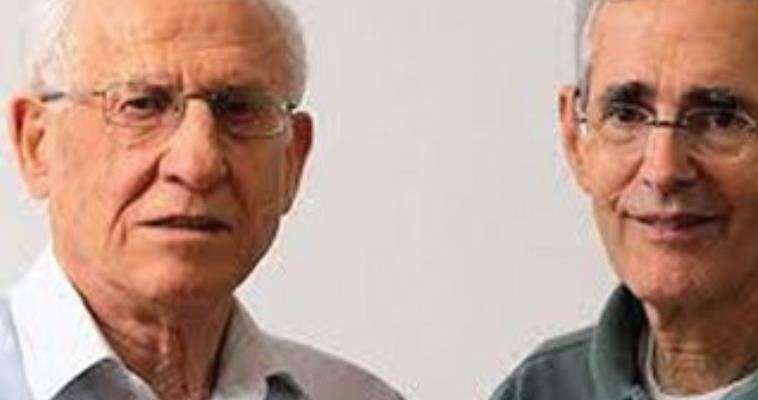Columbia University has announced that its top honor for achievement in biological and biochemical research will be awarded to two researchers from the Hebrew University of Jerusalem and a colleague from the United States.
The 2016 Louisa Gross Horwitz Prize will be presented to Professors Howard Cedar and Aharon Razin of the Hebrew University’s Faculty of Medicine, and Dr. Gary Felsenfeld of the National Institutes of Health in Bethesda, Maryland.
Since the Horwitz Prize was first awarded in 1967, 43 of the 94 winners have gone on to win Nobel Prizes, most recently in 2014.
The researchers will be awarded for their fundamental work on how molecules regulate the structure, behavior and activity of DNA without modifying its genetic code. Their research has yielded key insights into how cells and embryos develop, and led to the formation of a new field of biology called Epigenetics.
Among the innovations attributed to Cedar and Razin is the concept of epigenetic reprogramming, a key process in development that erases and re-establishes the ability of cells to transform into different types.
These three scientists have advanced our understanding of how gene regulation works and what happens when the processes go wrong,” said Lee Goldman, MD, Harold and Margaret Hatch Professor of Columbia University, dean of the Faculties of Health Sciences and Medicine, and chief executive of Columbia University Medical Center. “These are fundamental medical discoveries that may lead to innovative treatments for a range of diseases.”
“These researchers laid the foundation for an important new field of study,” said Gerard Karsenty, MD, PhD, chair of the Horwitz Prize Committee and chair of the Department of Genetics and Development at Columbia University Medical Center. “As our cells divide and become more specialized they need instructions on which genes to use and which to ignore. Epigenetics adds these annotations to our biological textbook; it’s a process that is crucial to our development and continues throughout our lives.”
Courtesy: The Hebrew University of Jerusalem










